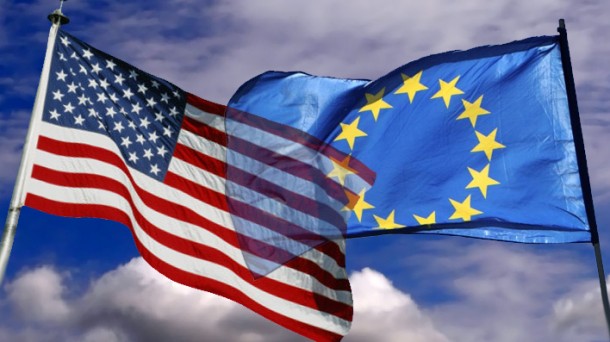It has been years since Europe first faced economic depression. While the prospect of a multi-year debt crisis still scares several member countries, EU institutions started coming up with plans for economic rejuvenation. One strategy has been European Central Bank’s quantitative easing in early 2015: a plan supposed to stimulate the economy by encouraging banks to do more loans.
Another point on the list is the Transatlantic Trade and Investment Partnership, or TTIP. In 2013, European Parliament gave the Commission a mandate to start negotiations for a trade and investment deal with the US, which is supposed to generate growth across the EU, fostering European export to US and cutting shopping prices.
On 8 July 2015, European Parliament approved a resolution containing recommendations to the European Commission on the negotiations for the TTIP, stating that the EU and the US are key strategic partners and remarking the high political importance of a successful conclusion of the project.
The TTIP itself, however, is quite a debated idea. It has attracted criticism from a wide variety of NGOs and activists; more than 480 organizations in Europe currently run a self-organized European Citizens’ Initiative against TTIP (and CETA, an agreement already in place with Canada).
But if the TTIP is supposed to foster growth both in Europe and in the US, making it easier and fairer to export, import and invest overseas, why is there such a massive opposition to it?
Many aspects of TTIP inflame criticism. The first concerns transparency of negotiations. More extensive access to TTIP documents has been invoked not only by public society but also by Members of European Parliament. Even if the Parliament has the last word in the approval of the treaty, the Commission, which by mandate is in charge of negotiations, decided only in late 2014 to provide broad access to TTIP documents for all MEPs.
But criticism goes further. The foreseen inclusion of an Investor-state dispute settlement mechanism (ISDS) – an instrument of public international law which grants investors the right to challenge a law, regulation or any other government decision, in a dispute settlement proceedings arbitrated by private lawyers – has been highly debated. EP is clearly divided about TTIP, but as inferred in early July by Gianni Pittella, President of the Socialists & Democrats group, ISDS is going to be completely revised. Two thirds of the group believe – Pittella said – that it must be replaced by a new public and transparent system of investment protection in which private interests cannot undermine public policy and which is subject to public law.
Both the US and the EU have low duties on imports – around 4 per cent on average, according European Commission – but some industries, like food or textiles, still suffer from high tariffs. According to Italian Vice minister Carlo Calenda, the treaty is going to benefit countries like Italy which have high standards in the agro-alimentary sector and whose potential for export is fringed by tariffs. These previsions, however, should be integrated by the analysis of the possible negative outcomes. Activists believe that EU high safety standards on food could possibly be weakened, were to be accepted for the trade pact the less strict regulations provided by the Codex Alimentarius.
The discussion about TTIP, however, may incidentally entail even consequences for the future of European Union. Provided that trade of a few (or a great deal of) EU member state’s trade with US were to rocket – and that still needs to be proved – it is probably going to occur at the expense of intra-EU trade and investment. More export and investment to the US, less between EU member partners. As the advance of the economic and political unification of Europe is being halted by the egoisms of Member States in a great variety of fields – from external relations to social issues and finance – the approval of TTIP may also epitomize a choice between the progressive loosening or strengthening of the Union itself.

